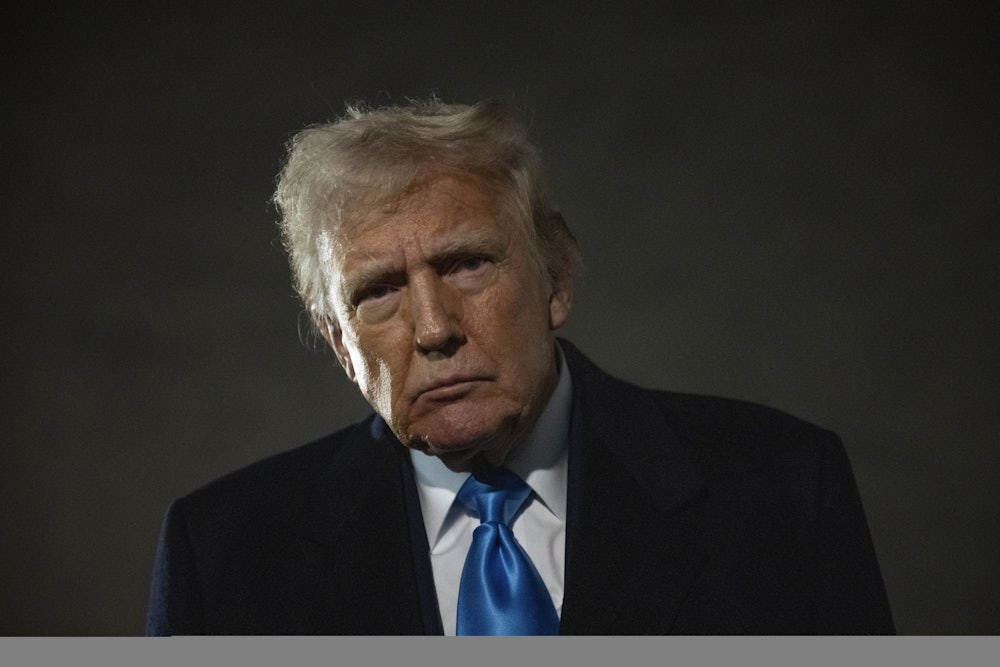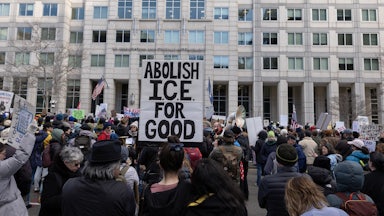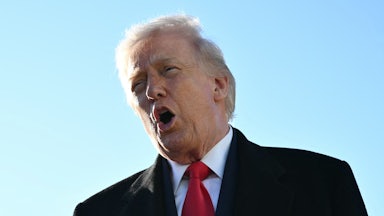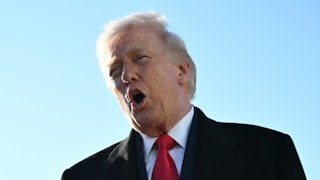In an effort to tamp down the outcry around Elon Musk’s autocratic and illegal power grabs, the Treasury Department has sent a new letter to Congress that casts Musk’s takeover of the agency in benign terms. The letter suggests Musk’s access to Treasury’s payment systems—which was granted by President Trump; the systems are the conduit for $6 trillion in annual government payments to an enormous range of recipients—merely amounts to an innocent “audit” process, portraying this as part of a broad government reform agenda.
But if this letter is genuinely designed to address public alarm about these arrangements, it fails pretty miserably. In fact, the letter’s sheer evasiveness makes this scandal look worse. The letter has been dutifully noted by news reports, but it’s worth a closer read because it illustrates the range of questions that the administration will not answer about Musk’s arrangements.
“This letter reeks of a cover-up,” Senator Ron Wyden, the ranking Democrat on the Finance Committee, told me. “It doesn’t pass the smell test.”
The top-line claim in Treasury’s letter—which is a response to a January 31 letter from Wyden posing questions about Musk—is that this access is “read-only.” It says that a tech executive named Tom Krause—a member of Musk’s Department of Government Efficiency—has this “read-only access” to “coded data” of Treasury’s payment systems, to undertake a review of the systems to enhance their efficiency and integrity.
“Expanding on efforts that began under the prior administration, Treasury has been undergoing a review of these systems,” the letter says, adding that this review “is not resulting in the suspension” of any payments that Treasury is making. Krause has been designated as a “Special Government Employee,” it continues, meaning he’s subject to some but not all ethics rules, and his review is being conducted “in coordination with veteran career Treasury officials.”
In other words, Musk’s access merely expands on a process begun under President Biden, and contrary to critics’ fears, it isn’t empowering Musk or his team to go rogue inside the agency or turn off any congressionally authorized government payments at will.
But all this raises immediate questions. First, why is someone on Musk’s DOGE being given access to coded data on Treasury’s payment systems in the first place? If this were a mere expansion of a previous review process, why didn’t Treasury Secretary Scott Bessent assign one of those “veteran career officials” to oversee it, as opposed to granting it to someone who apparently answers to Musk?
Underscoring the point, Wyden said that his office has questioned former Treasury officials who are unaware of any previous Biden-era process that could be construed as the precursor to what we’re seeing now.
“We have no indication that this story about an ongoing audit of the payment system is legit,” Wyden told me. “There is no good reason for political operatives to get into these systems.”
Also unanswered in Treasury’s letter: What sort of access does Musk have to these data and systems via Krause? The White House has declared that Musk is also a Special Government Employee. Does Musk have access to this data and these systems, and can he issue directives with regard to them via Krause—who again is part of DOGE—or not? Does Krause have the authority to override those career officials as part of this process?
Somewhat insultingly, the letter says nothing meaningful about Musk’s role. So naturally, none of these unknowns are addressed. Remember, the most senior career official at Treasury recently was purged after protesting the access that DOGE officials had secured. Why would that have happened if this were an innocent expansion of a previous process under that same official?
“If they were really continuing a routine audit of the payment system without political interference,” Wyden asked, “why did the nonpartisan official who managed the system for years get forced out when Musk’s hatchet brigade showed up?”
Wyden said that he and his staff are currently trying to establish whether DOGE is planning to load this coded data into outside servers to employ artificial intelligence on it, as reports have hinted is broadly being considered. Claiming that access to the data is “read-only” doesn’t preclude this possibility.
It’s also worth looking at the questions in Wyden’s January 31 letter that are not answered in Treasury’s response: Why did Treasury grant DOGE officials access to its payment systems? What’s the legal authority for granting this to DOGE officials in particular? Who are the full range of officials on DOGE that have access to them? Has Treasury vetted whether DOGE’s access—and Musk’s access—raises conflicts of interest, given Musk’s extensive business holdings, particularly in China?
“The possibilities for corruption are endless,” Wyden said, pointing out that Musk, as a major government contractor, now has access to information about his “direct competitors.” Wyden added: “Whistleblowers are needed now more than any time in my time in public service.”
The sheer speed and scope of the Trump-Musk blitzkrieg can easily seduce us into believing that they’re politically invincible, that the president—and Republicans who are eagerly embracing all of it—will never pay a political price for any of this lawlessness.
But there are signs that even people around Trump don’t believe this. The administration rescinded his illegal funding freeze after a public outcry. Trump temporarily backed down on his tariffs on Mexico. He has taken pains to say that he exerts control over Musk. The White House designated Musk a Special Government Employee to defuse criticism of his undefined role. And now this letter from Treasury attempts to cast Musk’s access as perfectly in keeping with standard practice.
Musk is plainly a political vulnerability for Trump. As William Kristol notes at The Bulwark, recent polling shows not just majority public disapproval of Musk but also that the minority that approves of him continues to shrink. And a new poll from Data for Progress and the Progressive Change Institute shows a slim majority is receptive to a message emphasizing how Musk’s encroachments enhance his capacity for corrupt self-enrichment, while only a small minority see his business smarts as a benefit to taxpayers. Perhaps voters are not easily hypnotized by pro-Musk hagiography painting his tech wizardry as an asset the rest of us are lucky to benefit from, especially when the reality of his autocratic and lawless power grabs is spelled out for them.
As this Treasury Department letter suggests, Trump and the White House don’t have easy answers to help them spin away what we’re all seeing unfold right before our eyes. Memo to large-D and small-d democrats alike: Keep hammering away at all these mounting questions, and don’t let up.










